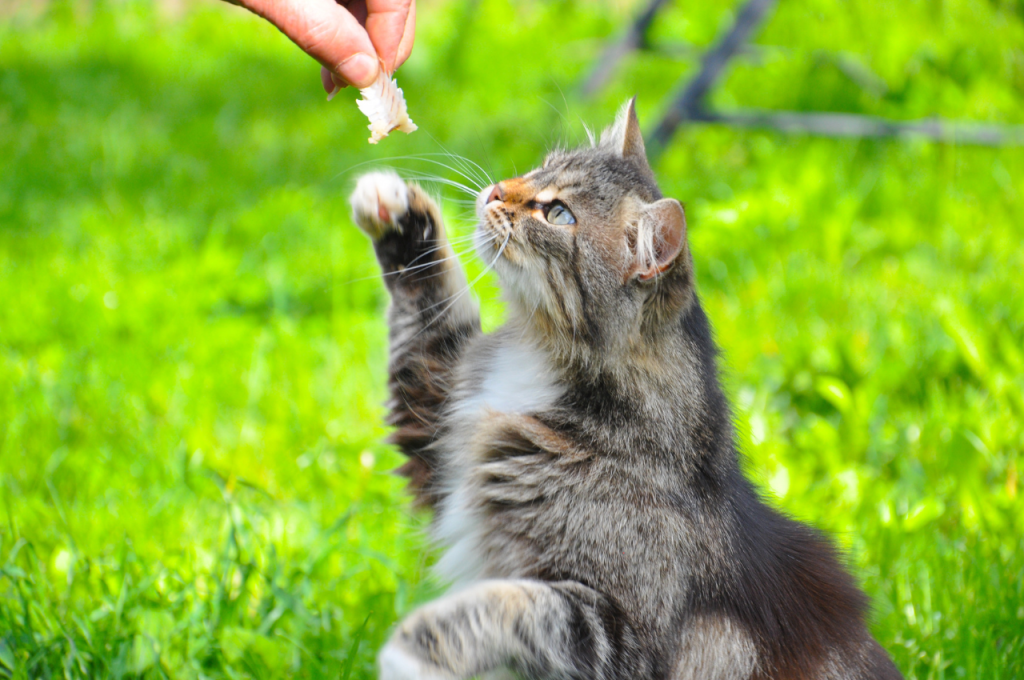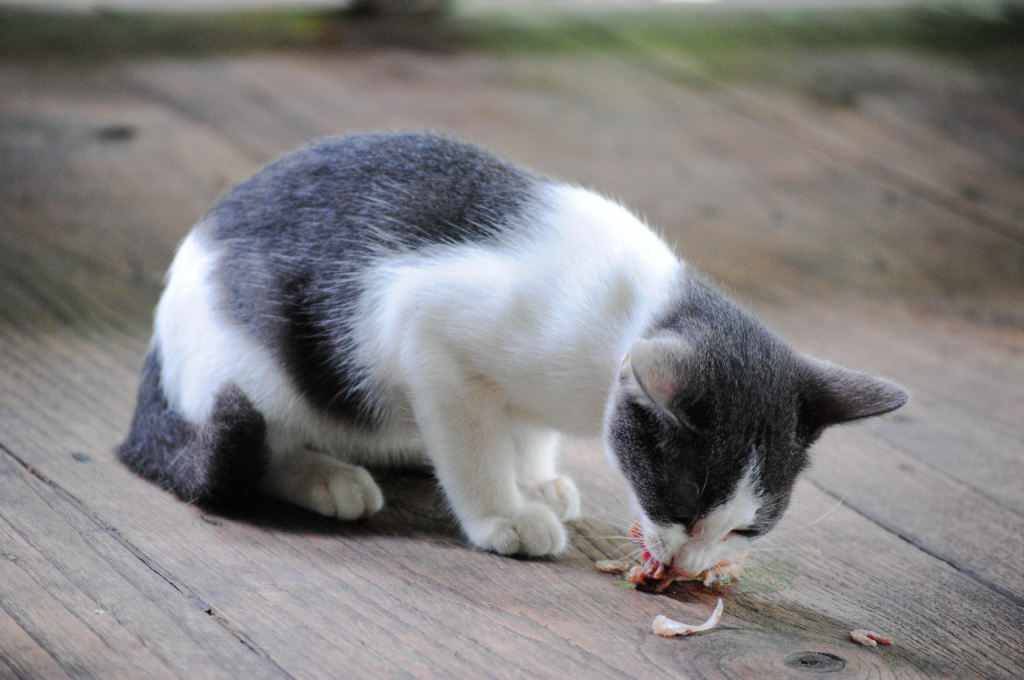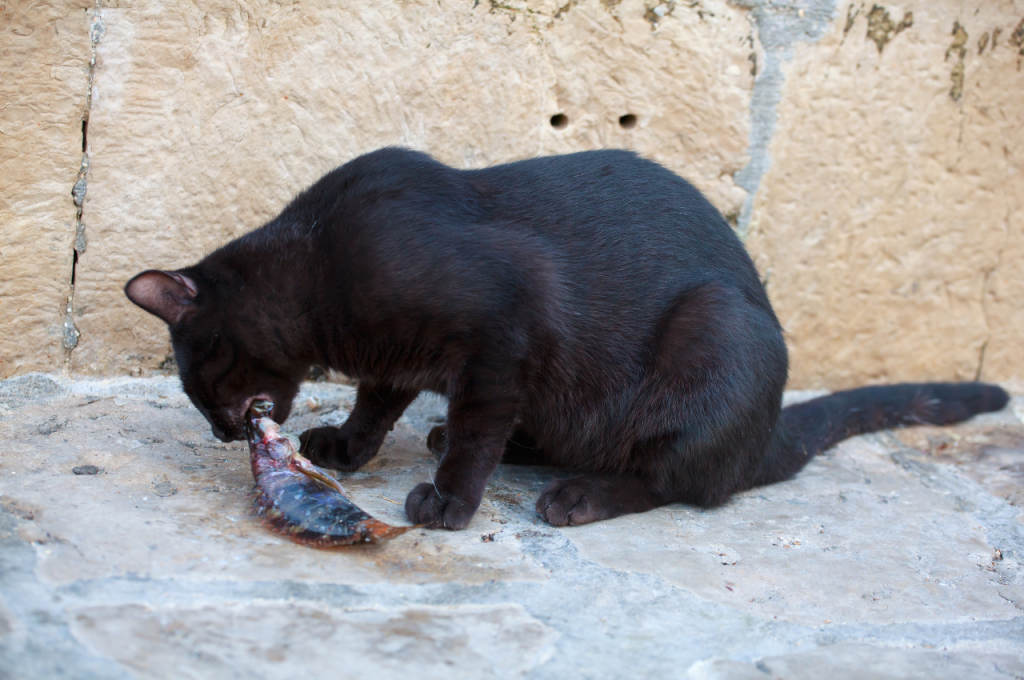Fish can be a healthy addition to a cat’s diet when given in moderation. It is a good source of protein and omega-3 fatty acids, which are beneficial for cats. However, it should not be the main component of their diet as it lacks some essential nutrients. It’s important to properly cook the fish and remove all bones and skin before feeding it to your cat. If your cat has any underlying health conditions, it’s best to consult with a professional before adding fish to their diet.
When it comes to feeding our furry feline friends, many cat owners often wonder if fish is bad for them. Well, here’s an interesting fact: while fish may seem like a natural choice for cats, it may not be as beneficial as it seems.
Historically, cats have been known to have a preference for fish. Their ancestors, such as the African wildcat, relied on fish as a source of food. However, in today’s commercial pet food industry, feeding cats a fish-based diet can have its drawbacks. Surprisingly, fish can be high in mercury and other contaminants, which can be harmful to cats in large quantities.
The Debate Surrounding Fish and Cats
When it comes to feeding cats, there is often debate about the safety and nutritional value of certain foods. One particular topic that sparks interest and discussion is whether fish is bad for cats. Some cat owners believe that fish is a healthy and natural diet choice for their feline companions, while others argue that it can have negative effects. To determine the truth about fish and its impact on cats, it is crucial to examine the potential benefits and risks associated with incorporating fish into a cat’s diet.

Many cat owners are familiar with the sight of their furry friends eagerly devouring a can of tuna or a piece of salmon. Cats are known for their love of fish, but does that mean it is suitable for their overall health? On one hand, fish is a source of lean protein, omega-3 fatty acids, and essential nutrients like vitamin D and iodine. These nutrients can be beneficial for cats, especially if they are lacking in their regular diet. However, there are also potential risks involved.
A common concern with feeding fish to cats is the potential for mercury contamination. Fish, particularly larger species like tuna, may contain traces of mercury, which can be harmful to cats if consumed in large quantities. Mercury poisoning can lead to neurological issues, digestive problems, and even organ damage. Additionally, fish that are not prepared properly may contain bacteria and parasites that can cause gastrointestinal upset and other health issues in cats. Therefore, it is crucial to consider these risks before including fish in a cat’s diet.
To ensure a balanced perspective on the matter, it is essential to explore both the potential benefits and risks of feeding fish to cats. By understanding the facts, cat owners can make informed decisions about their pets’ nutritional needs.
The Benefits of Fish for Cats
While there are potential risks associated with feeding fish to cats, there are also several benefits that should not be overlooked. Here are some of the reasons why fish can be a valuable addition to a cat’s diet:
- Fish is a natural source of lean protein, essential amino acids, and omega-3 fatty acids, all of which are crucial for a cat’s overall health and well-being.
- The omega-3 fatty acids found in fish help promote healthy skin and a shiny coat in cats, reducing the risk of skin allergies and dermatological issues.
- Fish is a rich source of vitamin D, which plays a vital role in calcium absorption and bone health in cats.
- Cats that consume fish regularly may have improved cognitive function and a reduced risk of developing cognitive decline or age-related cognitive dysfunction.
- For cats with food sensitivities or allergies to other protein sources, fish can provide a hypoallergenic alternative that is easier to digest.
Despite these potential benefits, it is important to note that fish should be fed to cats in moderation and as part of a well-balanced diet. Cats have specific dietary requirements, and fish alone may not meet all of their nutritional needs. It is always advisable to consult with a veterinarian before making any significant changes to a cat’s diet, including the introduction of fish.
Mercury Contamination and Fish Consumption
One of the primary concerns surrounding the inclusion of fish in a cat’s diet is the potential for mercury contamination. Mercury is a heavy metal that can accumulate in large fish due to water pollution. It is particularly concentrated in predator fish such as tuna, swordfish, and shark. When cats consume fish containing mercury, it can accumulate in their bodies over time, leading to health issues.

To minimize the risk of mercury contamination, it is advisable to choose smaller fish species or fish with lower mercury levels, such as salmon or sardines. These options still offer the nutritional benefits of fish without the same level of mercury exposure. Additionally, it is crucial to limit the frequency of fish consumption and ensure that fish is not the sole protein source in a cat’s diet.
Veterinarians recommend following the guidelines established by the World Health Organization (WHO) and the Food and Drug Administration (FDA) when it comes to fish consumption for both humans and animals. These guidelines provide information on safe fish choices and maximum recommended intake based on mercury levels.
Finally, it is essential to note that the impact of mercury exposure can vary depending on the size and age of the cat, as well as the overall health status. If a cat has pre-existing health conditions, such as kidney or liver disease, it may be more vulnerable to the effects of mercury toxicity. Therefore, regular veterinary check-ups are crucial to monitor a cat’s overall health and detect any potential issues related to fish consumption.
Potential Risks of Feeding Fish to Cats
While fish can provide a range of health benefits for cats, there are potential risks that must be considered. Here are some of the risks associated with feeding fish to cats:
- Fish that is not prepared properly or sourced from unreliable sources may contain harmful bacteria and parasites that can cause gastrointestinal upset and other health issues in cats.
- The high levels of phosphorus in fish can be detrimental to cats with kidney disease or other renal issues, as it can increase the workload on the kidneys and worsen the condition.
- Cats that consume fish as their main protein source may develop an imbalance in their overall nutrient intake. Fish alone does not provide all the essential nutrients that cats need, such as taurine, which is crucial for heart health and vision.
- Excessive consumption of fish can lead to weight gain and obesity in cats, as fish is generally higher in fat content compared to other lean protein sources.
It is important to address these potential risks by feeding fish in moderation and as part of a balanced diet. By incorporating other protein sources, such as poultry or red meat, and ensuring a variety of nutrient-rich foods, cat owners can mitigate the potential negative effects of fish consumption.
Alternatives to Feeding Fish
If cat owners are concerned about the potential risks associated with fish consumption or if their cats have specific dietary restrictions, there are alternative protein sources that can provide similar nutritional benefits. Some of these alternatives include:

- Poultry: Chicken and turkey are excellent sources of lean protein for cats. They provide essential amino acids and are generally well-tolerated by most cats.
- Red Meat: Beef or lamb can be included in a cat’s diet, but it is important to ensure that the meat is lean and free from added seasoning or spices.
- Vegetables: While cats are obligate carnivores, small amounts of cooked vegetables like pumpkin or peas can be added to their diet as a source of fiber and additional nutrients.
- Commercial Cat Food: High-quality commercial cat food formulated specifically to meet a cat’s nutritional needs can provide a well-balanced diet without the need for additional protein sources.
It is important to consult with a veterinarian to determine the best alternative protein sources for a cat’s specific dietary requirements. A veterinarian can provide guidance tailored to an individual cat’s needs, taking into account any underlying health conditions or allergies.
Frequently Asked Questions
Many cat owners wonder if it is safe for their feline companions to eat fish. While fish can be a delicious treat for cats, there are some considerations to keep in mind. Here are answers to some common questions about whether fish is bad for cats.
Can cats eat fish?
Cats can eat fish, but it should be given in moderation. Feeding fish as a treat occasionally can be a healthy addition to a cat’s diet. However, fish should not be the sole source of nutrition for cats, as it lacks certain essential nutrients that cats need to thrive.
It is also important to note that not all fish are suitable for cats. Certain species, such as tuna, can be high in mercury, which can be harmful to cats if consumed in large amounts. Additionally, the fish should be cooked thoroughly to kill any potential parasites or bacteria that could make your cat sick.
Why is fish bad for cats in large quantities?
While fish can be a healthy addition to a cat’s diet in moderation, too much fish can be harmful to cats. Fish lacks certain essential nutrients, such as taurine, that cats need to maintain good health. Over time, a diet solely based on fish can lead to nutritional deficiencies and health issues for cats.
Furthermore, some fish, particularly larger predatory fish like tuna, can accumulate high levels of mercury. Ingesting excessive amounts of mercury can cause mercury poisoning in cats, leading to neurological problems and other health complications.
What are the risks of feeding raw fish to cats?
Feeding raw fish to cats carries certain risks. Raw fish can contain parasites, such as tapeworms or bacteria like salmonella, that can make your cat sick. This is especially true if the fish is not fresh or has not been handled and stored properly.
Cooking the fish properly can help eliminate these potential risks, as heat will kill any parasites or bacteria. If you choose to feed your catfish, it is generally safer to feed it cooked rather than raw.
What are the benefits of feeding fish to cats?
When given in moderation and as part of a balanced diet, fish can provide several benefits to cats. Fish is a good source of protein and omega-3 fatty acids, which are essential for a cat’s overall health and well-being.
Omega-3 fatty acids in fish can support a cat’s immune system, promote healthy skin and coat, and help with joint health. It can also be a tasty and enjoyable treat for cats, providing them with mental stimulation and enrichment.
Conclusion
The question of whether fish is bad for cats does not have a simple answer. While fish can offer several health benefits, such as being a source of lean protein and omega-3 fatty acids, there are potential risks associated with fish consumption, including mercury contamination and nutrient imbalances. The key to incorporating fish into a cat’s diet is moderation and balance. Fish should not be the sole protein source, and other alternatives should be considered for cats with specific dietary restrictions or health conditions.
Consulting with a veterinarian is crucial to ensure that a cat’s nutritional needs are met and any potential risks are minimized. By making informed decisions about feeding fish to cats, cat owners can provide their feline companions with a well-rounded and nourishing diet.
